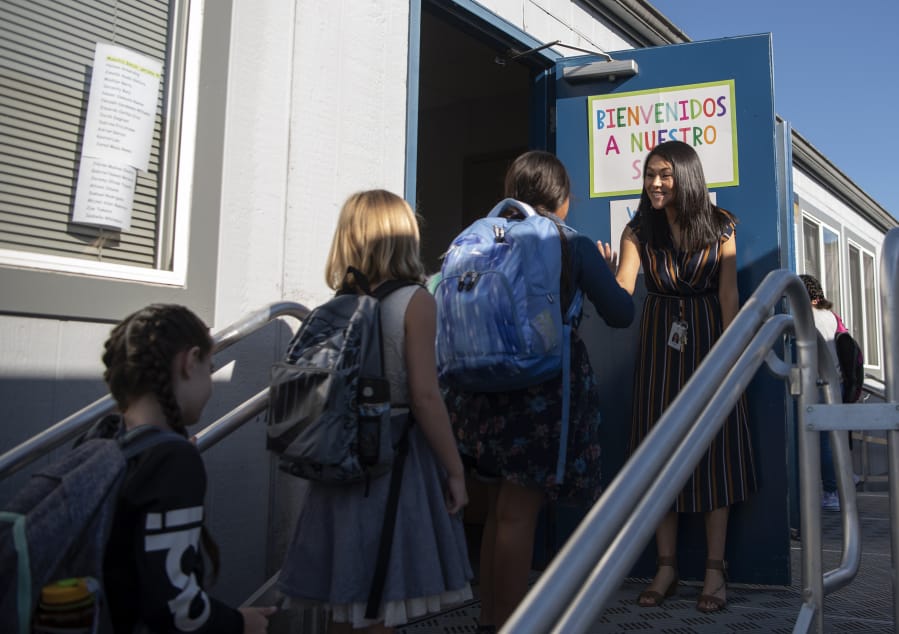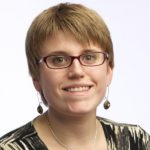Maria Garcia was up at 4 a.m. Tuesday, running through a checklist in her head. Were all the pencils sharpened? The classroom ready? Lessons planned?
They were, but that back-to-school anxiety is an unshakable feeling. When you’re a first-year teacher, the nerves are even more pronounced.
Garcia is a new fifth-grade teacher in Pioneer Elementary School’s dual-language immersion program, a blended class taught partly in Spanish, partly in English. She, along with thousands of students and teachers across Clark County, returned to class for the first day of school on Tuesday.
“I’m so excited,” said Garcia, who was a paraeducator at Mill Plain Elementary School for four years. “There’s a lot of new things for me, a lot of new things for the students, but they’re all good things.”
Garcia and 10 others recently graduated with their teaching degrees from Washington State University Vancouver through a program called the Equity for Language Learners-Improving Practices and Acquisition of Culturally Responsive Teaching, or ELL-IMPACT. The grant-funded program seeks to provide 52 bilingual paraprofessionals in Vancouver and the Tri-Cities over five years with scholarships to complete their bachelor’s degrees in education with English-learners endorsements.
Four former Evergreen Public Schools paraeducators, including Garcia, landed teaching jobs with the district this school year.
Next door at Frontier Middle School, fellow ELL-IMPACT graduate Ida Crocamo-Farley was also greeting her sixth-grade students for the first time. Crocamo-Farley is also teaching in a dual-language immersion classroom, covering language arts and math.
And, Crocamo-Farley admitted to her students, she’s a bit “nerviosa” for school to start, too. Crocamo-Farley spent 16 years as a paraeducator at Wy’east Middle School. She was focused for years on raising her family, but always wanted to take that next step into teaching.
“I love working in schools,” she said, standing in a classroom decorated with vibrant yellows and reds.
Tuesday was the first day of school for most students in Clark County, with Evergreen, Battle Ground, Vancouver and Washougal schools opening their doors. Students at both Frontier and Pioneer greeted their friends and favorite teachers with hugs, pulling fresh school supplies from their bags and comparing schedules.
Blanca Garcia (no relation to Maria Garcia) stood back in the dual-immersion fifth-grade classroom at Pioneer Elementary School. Blanca Garcia watched as her 10-year-old son, Adrian, settled into his desk. She snapped some photos of him with his classmates and mouthed “have a good day,” before sneaking out the back door.
It’s a big year for Adrian; his last at elementary school before moving next door to Frontier. They’re focusing on math and middle school maturity this year in preparation for the big transition.
For now, Blanca Garcia’s glad to see her son back in the dual-immersion classroom. Her husband is Hispanic, but she speaks no Spanish, so Adrian doesn’t hear much at home. This is a way to keep the language alive.
“It’s really nice for them to learn their culture,” she said.





